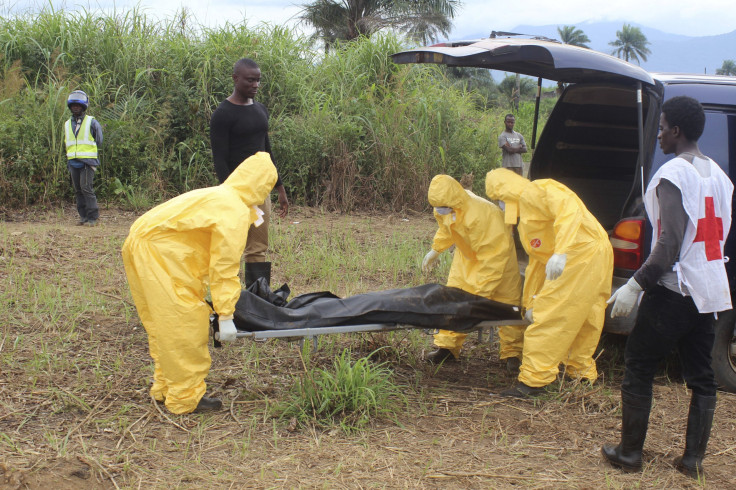Ebola: Workers In Sierra Leone Dump Corpses Outside Hospital In Protest

Protesting workers in Sierra Leone, who claimed they had not been paid a hazard allowance in weeks for performing the dangerous task of burying Ebola victims, dumped several corpses outside a hospital in the southeastern city of Kenema, reports said. According to local residents, 15 bodies were found on the streets while three were left in the hospital doorway.
Health care workers in Sierra Leone and Liberia, two of the worst-hit countries in the ongoing Ebola outbreak, have conducted several strikes demanding adequate compensation for the dangerous working conditions. A spokesperson for striking workers of the Ebola Burial Team in Sierra Leone said, according to Reuters, that the workers had not been paid their weekly hazard allowance for seven weeks, a claim that was accepted by authorities who threatened to dismiss the striking workers.
“Displaying corpses in a very, very inhumane manner is completely unacceptable," Sidi Yahya Tunis, spokesman for the National Ebola Response Centre, said, according to Reuters, adding that the federal government had paid the money to the district health management team but it had not reached the workers. "Somebody somewhere needs to be investigated (to find out) where these monies have been going," Tunis said.
Two weeks back, health care workers in southern Sierra Leone, where over 1,200 people have died so far, walked out of an Ebola treatment center in Bo over similar issues. According to an estimate by the World Health Organization, nearly 558 health care workers have been infected by Ebola and about 337 of them have died so far, The Guardian reported. The virus has killed over 5,400 people so far and has affected more than 15,000 people, mostly in West Africa.
On Monday, Anthony Banbury, head of the United Nations Mission for Ebola Emergency Response, said that the target of getting 70 percent of the infected people into treatment, and to safely bury 70 percent of those who have died due to the virus by Dec. 1, would not be attained.
"In some places, we are definitely going to make it: we see some really good impact of the efforts of the national authorities and the United Nations system," Banbury said, according to The Guardian, adding: "It’s clear where there are escalating cases rapidly accelerating the spread of the disease, and where we don’t have the response capability on the ground, and that’s definitely the case in some places, we’re not going make it."
© Copyright IBTimes 2024. All rights reserved.






















